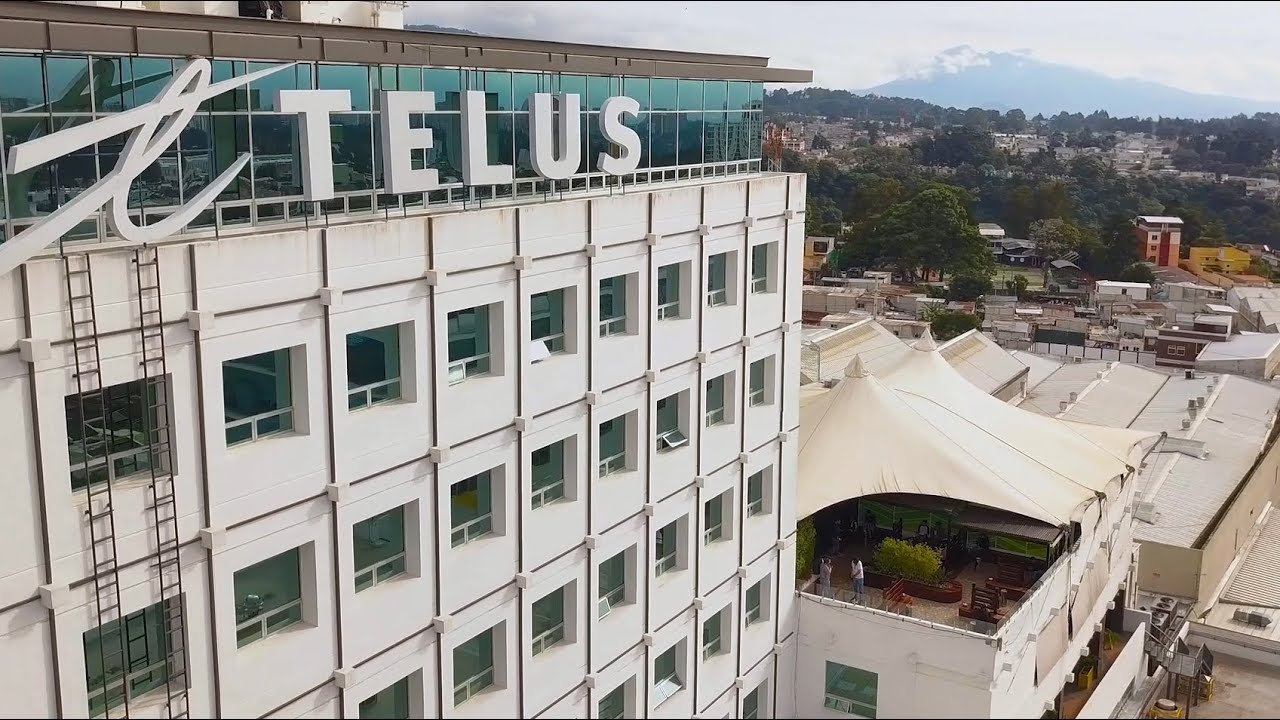

Is Telus the fastest internet available? The company’s fibre optic network, unveiled Friday in Vancouver, is fast. But it isn’t the world’s fastest internet, as some claim.
On Friday morning, at a ballroom in the Fairmont Pacific Rim, Telus announced it would spend a billion dollars to bring a new fibre optic network to Vancouver. CEO Darren Entwistle, flanked by B.C. Premier Christy Clark and Vancouver Mayor Gregor Robertson, unveiled a plan that will see the company heavily invest in a fibre service that will next year deliver local residents and businesses with internet speeds of up to 150 megabits per second. The company says it is part of a plan to invest $4-billion in B.C. by 2018.
“Bringing fibre optic infrastructure directly to homes and businesses is a generational investment and the most significant contribution our organization can make to propel Canada’s communications infrastructure and ensure its global competitiveness for decades to come,” said Entwistle. “Our $1-billion investment will provide one of Canada’s largest urban centres with ubiquitous access to the fastest and most reliable Internet services to dramatically improve the way Vancouverites live, work and socialize.”
150 megabits per second is nothing to scoff at, and Entwistle is right to suggest it could improve the everyday lives of Vancouverites. This is Jetson’s-like stuff, if the Jetson’s had turned its attention away from flying cars and robot maids. At the speed Telus says it will deliver from its fibre optic network, the average movie would download in less than five minutes. And an album’s worth of songs would take seconds. It is, to put it mildly, light years away from dial-up the company began to offer in 1995, and it’s a significant upgrade on the 4G LTE wireless service it launched in 2012.
Friday’s announcement from Telus announcement is oddly similar to one Bell made earlier this year, complete with requisite mayoral presence. The headline of the Toronto Star piece on Bell’s event? “Bell Canada to give Toronto world’s fastest Internet”.
But Telus isn’t offering the world’s fastest internet. And it might not even have a corner on Canada’s fastest.
In 2012, SaskTel launched infiNET, a fibre optic network that boasted download speeds of 200 Mbps. The company now claims download speeds of up to 260 Mbps and upload speeds of 60 Mbps.
Friday’s announcement from Telus announcement is oddly similar to one Bell made earlier this year, complete with requisite mayoral presence. In late June, Bell Canada CEO George Cope, seated beside Toronto Mayor John Tory, said his company would spend spend $1.4 billion to give Torontonians internet at speeds it said would eventually top 940 Megabits per second. Bell’s offering, called Gigabit Fibe, would offer the “most incredible transformation of broadband we have ever seen,” said Cope.
The headline of the Toronto Star piece on Bell’s event? “Bell Canada to give Toronto world’s fastest Internet”.
In the United States, both Comcast, with “Extreme 250”, a 250 Mbps Internet speed tier for certain California customers, and Verizon, with “FiOS Quantum” a service that offers download speeds of up to 300Mbps, were launched earlier this year.
Telus, fastest internet? Not quite…
But the elephant in the room, of course, is Google. Google Fiber, a fiber-to-the-premises service that boasts upload and download speeds in excess of a gigabit per second, was introduced as a beta in 2011 in Palo Alto, California. The service launched in Kansas City later that year and then expanded to Salt Lake City, Austin, Charlotte, Nashville, Provo, Raleigh–Durham, San Antonio, and Atlanta, with plans for several new cities.
Why is Google Fiber important? It represents was the first Fiber to the Premises service that most Americans had ever heard of. In broad terms, there are two types of fiber optic networks, Fiber to the Premises (FTTP) and Fiber to the Cabinet (FTTC). Google Fiber is the former, and it explains why the rollout is much slower than the general public would like. It’s because FTTP requires the ISP to actually connect, via a shallow trench, the fiber optic cable to your house. FTTC, the first iteration of fiber networks, relies on copper lines for approximately the last three-hundred metres, relayed from a “cabinet”, or utility box. This wired technology represents a significant bottleneck, and it means speeds top out at about 80 megabits per second.
When Bell, Telus, Rogers, Comcast etc. get excited and you hear pronouncements about the “world’s fastest internet” what you hear is them getting giddy about the prospects of their first true FTTP offering. In the press release accompanying Friday’s announcement, Telus noted that its team would cross the city, “neighbourhood by neighbourhood, knocking on doors to discuss connecting homes and businesses directly to Telus’s fibre optic network and installing infrastructure.”
If it all sounds too good to be true, there is a downside and that is price. Telus’s offering, like Bell’s is likely to be tiered by data caps that could add to the approximately $100 more a month you can expect to pay if you want fibre to your home.
Comment
Leave a Reply
You must be logged in to post a comment.





 Share
Share Tweet
Tweet Share
Share




Hate to break it to you but Bell Aliant FibreOP already offer gigabit internet here in Newfoundland and I’ve been using a 150 down 30 up connection (now increased to 190 down 50 up) for 3 years now. I’m not sure what way Telus is trying to spin this but I also read a headline from another Vancouver based publication that was claiming the new network would be the worlds first gigabit network… Ha!.. Not by a long shot.
Forget the marketing hype. They all do it. Fact is it is plenty fast for all but the most extreme user and is a terrific advance. I am using Telus Optik and look forward to the day they upgrade my home to fibre.
Hate to break it to you, but Shaw Cable has been offering 250Mbps for quite a while now in Edmonton.. and I’m sure other places as well.
My new son-in-law is from Romania. Romania has had fiber optic Internet for years. The cost of it should shock Canadians! He gets 1,000 meg service for 10 Euro’s a month. About $15. And that’s NOT a typo. One THOUSAND meg download speed – unlimited usage – for 10 E/month. Sure puts this flap over Telus’ fiber optic roll out into perspective!!! And I should add – his worldwide unlimited cell phone costs him 7 Euros/month.
They’re WRONG. Been in Romania for 5 years plus. 1,000 megs for 10 Euros a month! Unlimited data.